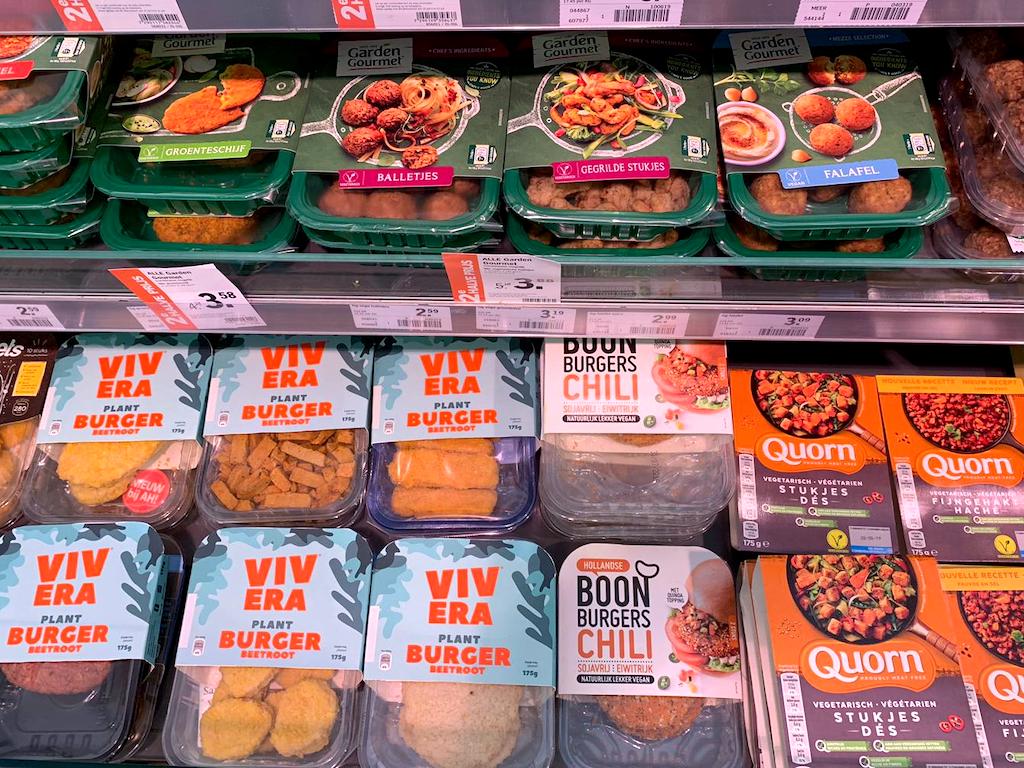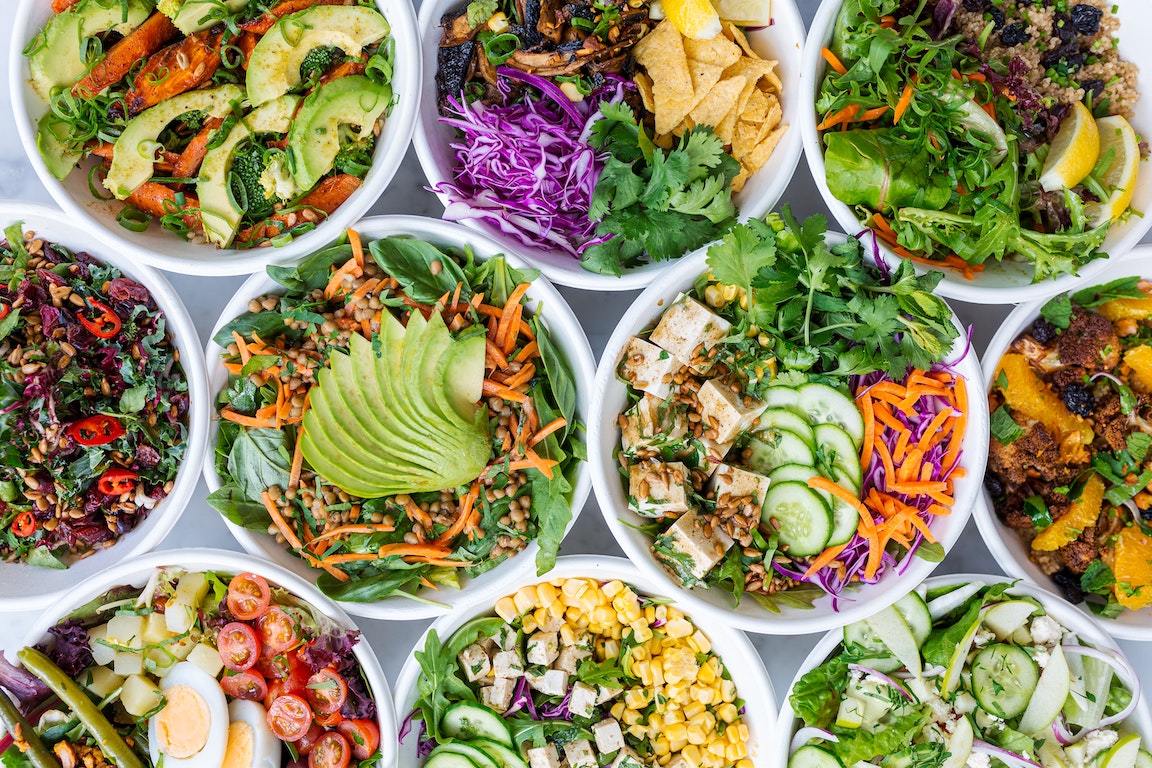5 Countries Prioritizing Low-Carbon, Plant-Forward National Food Policy
6 Mins Read
National decarbonization plans require a focus on food-related greenhouse gas emissions and these five countries have put plant-forward diets front and center of domestic climate policy.
It took 26 COPs (the international climate change conference where world leaders gather to discuss decarbonization plans and commitments) before food was officially added to the agenda, finally putting dietary policy at the heart of climate action and dialogue.
The UN report linking livestock agriculture production and greenhouse gas emissions was first published in 2006 and it’s only been a few years of mainstream headlines emphasizing the connection and telling readers that reducing meat and dairy consumption is the single biggest way to lower an individual’s carbon footprint. Scientists around the world designed a planetary health diet dubbed EAT-Lancet that called for a 50% reduction in red meat. But national government policy around reducing meat consumption has been slower to catch on, a minefield many politicians and bureaucrats don’t want to take on.
It’s getting harder for government to ignore this problem amidst a worsening climate crisis. An urgent need to decrease greenhouse gas emissions, an ever more urgent priority for world leaders, is not achievable in consequential terms without addressing food systems and what’s on our plate, which is why national decarbonization plans are highlighting plant-based diets more and more. Below, we highlight five countries that have taken the low-carbon plunge.

City Governments Around The World Increasingly Making Plant-Based Pledges
Municipal governments are getting involved too. 20 cities across the world have endorsed the Plant Based Treaty, including Los Angeles in the US, Edinburgh in Scotland, Didim in Turkey and 15 different cities in India. The Treaty, which is non-binding, advocates for reduced meat and dairy consumption in order to fight the consequences of the climate crisis. climate change.
Change around a more sustainable dietary policy is afoot in New York City too, where thanks to multiple campaigns by the city’s Mayoral office including backing a $44 million American College of Lifestyle Medicine (ACLM)-led initiative that provides training to the city’s healthcare practitioners around the benefits of plant-based diets, 11 public hospitals are now serving a selection of 14 plant-based meals as the default option for in-patients.

Public Procurement Key For Alt Protein Transition
A report called “The Breakthrough Effect” that was unveiled at this year’s World Economic Forum in Davos outlined three ‘super tipping points’ that could help the world achieve key climate emission reduction targets and transition to a zero-carbon economy. One of those super tipping points involves making alternative proteins such as plant-based meat more competitive in terms of cost and taste compared to animal equivalents. The report specifically calls out public procurement of these alt proteins by schools, hospitals and government canteens as a powerful way to drive adoption.

1. China Recognizes That Alternative Protein Key For National Food Security
China is home to an upwardly economically mobile population of over 1.4 billion. As hundreds of millions of people enter the middle class, the demand for animal protein foods will increase and China has limited amounts of arable land. China’s Ministry of Agriculture and Rural Affairs included a focus on future food technologies such as cultivated meat for the first time as part of their 5-Year Agricultural Plan published in January 2022 and President Xi Jin Pin called out the country’s alternative protein sector in a March 2022 speech about national food security.

2. Denmark’s 2021 Dietary Guidelines Push For Increasing Low-Carbon Foods & Decreasing Meat and Dairy Products
Denmark’s most recent dietary guidelines, published in 2021, include recommendations on consuming a larger percentage of carbon-friendly foods such as vegetables, fruits and legumes, as part of the country’s climate action plan. The official dietary guidelines explicitly suggest lowering the intake of meat and dairy products to 350 grams per week, from the 500 grams a week advised in the 2013 edition, underlining their carbon-intensive production.

3. Germany’s Minister of Food & Agriculture’s Strategy Makes Plant-Based Diets Focus of National Nutrition Strategy
In Germany, the drive to get citizens to consume less animal protein has political support. Not only is the Green Party, traditionally an environment-focused party, currently part of the ruling government coalition, the country’s Green Minister of Food and Agriculture National Nutrition Strategy includes a focus on plant-based diets, especially in government-run facilities such as hospitals and schools.
Minister Cem Özdemir wrote in a paper titled “Towards the Federal Government’s Nutrition Strategy” that the German government intends to establish a comprehensive nutrition strategy that will promote changes in the food system through early education and accessibility initiatives, informed by the German Nutrition Society (DGE) and the Planetary Health Diet.
His paper underlines that Germans consume more meat than required nutritionally, though
German meat production has been falling yearly since 2016, and recent data shows there was an even sharper decline in 2022 (just over 8% compared to 2021).

4. Taiwan’s 2023 Climate Bill Highlights Lower Carbon Foods As Essential To Fight Crisis
In its new climate bill that passed the legislature in January 2023 called the Climate Change Response Act, Taiwan is pushing more aggressively toward a 2050 countrywide net zero target and one of the main requirements involves promoting a low-carbon, plant-based diet.
Two articles in the bill address this: Article 8 states that the Council of Agriculture must promote low-carbon diets such as plant-based foods and Article 42 requires all levels of government officials to promote lower-carbon foods as a way to fight the climate crisis and requires them to support community events that promote low-carbon diets.

5. Dutch National Protein Strategy Includes Financial Incentives For Alternative Proteins
Over in the Netherlands, the government has been supportive of a transition away from animal agriculture. The Dutch Ministry of Agriculture, Nature and Food Quality released an updated National Protein Strategy in 2020 that was aimed at increasing the cultivation of protein-rich crops over 5 to 10 years and empowering alternative protein development via financial support and incentives into R&D for animal-free proteins. In an effort to reduce the country’s carbon and nitrogen emissions, the Dutch government set aside €25 billion to buy out livestock farms and cut down on the number of animals reared for meat and dairy.




